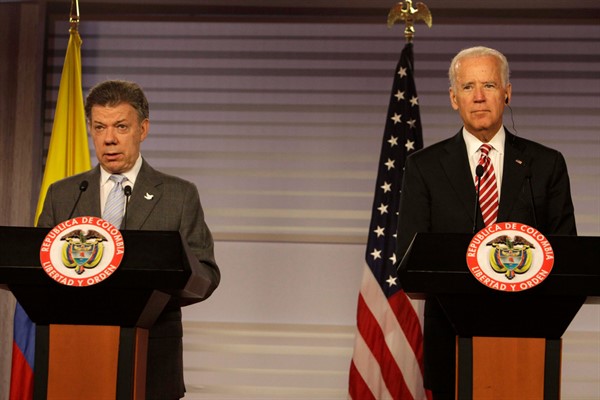BOGOTA, Colombia—In his last visit to Colombia as U.S. vice president in December 2016, Joe Biden praised then-President Juan Manuel Santos for the historic peace accord reached that year with the Revolutionary Armed Forces of Colombia—the country’s largest guerrilla group, better known as the FARC—which ended the longest-running armed conflict in the Western Hemisphere.
More than four years later, the Andean nation is at risk of losing most of the security gains from the hard-won peace agreement, with violence escalating to levels last seen before the peace talks. Now that Biden is back in office as president, he must pay attention to the factors derailing Colombia’s progress and work to straighten a long-term, bipartisan peace effort there.
Colombia’s 2016 peace deal was a badly needed dose of optimism for officials in Washington. After years of meticulous negotiations—and billions of dollars in U.S. foreign assistance—the deal generated an enthusiastic consensus in international bodies like the United Nations. But, despite the disarmament of the FARC, the implementation phase has been riddled with obstacles. The lack of effective state control in many regions of Colombia has facilitated the growth of armed groups and violent drug trafficking organizations, putting civilians at risk. To make matters worse, the COVID-19 pandemic is exacerbating already high rates of poverty and inequality in many of these areas.

